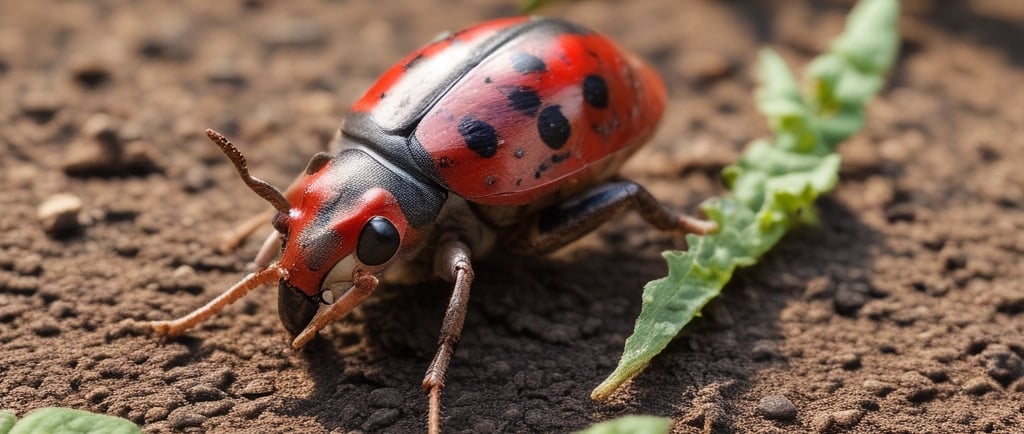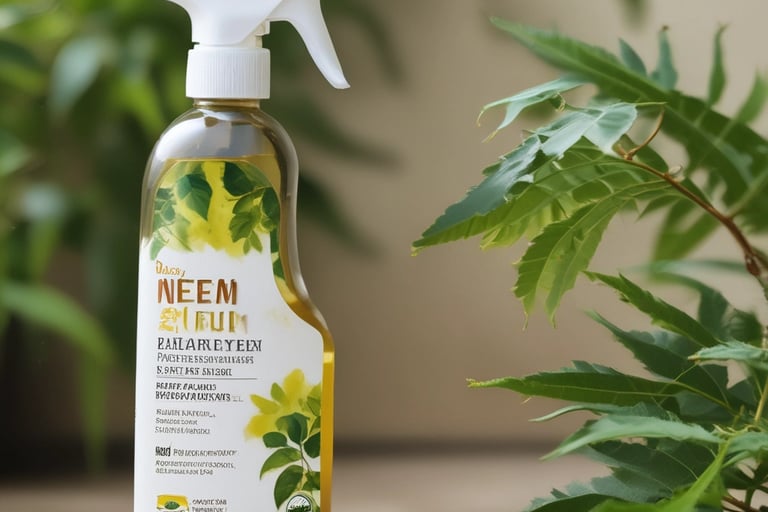Grow smarter with Honest Gardener today!
Organic Pest Control for Vegetable Gardens (USA Guide)
Learn effective, eco-friendly ways to protect your vegetable garden naturally. Discover the best organic pest control methods and products for U.S. gardeners.
VEGETABLES & HERBS
10/12/20254 min read


🌱 Introduction: Growing Healthy Vegetables Without Chemicals
Gardening is more than just growing plants — it’s about cultivating life. But if you’ve ever found your lettuce full of holes or tomatoes covered in aphids, you know pests can quickly turn your gardening joy into frustration.
For U.S. gardeners, especially those focused on organic and sustainable practices, chemical pesticides are no longer the first choice. Instead, more people are turning to organic pest control — safe, effective, and environmentally friendly methods that protect both your crops and the planet.
This guide will show you how to identify common garden pests, control them naturally, and choose the best organic pest control products (available on Amazon) to keep your vegetable garden thriving all season long.
🐛 Understanding Organic Pest Control
What Does “Organic” Really Mean?
Organic pest control means managing unwanted insects and diseases without synthetic chemicals or harmful pesticides. Instead, gardeners use natural substances, beneficial insects, and preventive techniques to maintain balance in the garden.
Why It’s Better for You and the Planet
Safe for pollinators like bees and butterflies
Protects soil health and beneficial microbes
Reduces chemical residue on food
Supports long-term sustainability
Organic gardening isn’t just a trend — it’s the future of healthy, productive home gardens.
Common Pests in U.S. Vegetable Gardens
Before you control pests, you need to identify them. Here are some of the most common troublemakers in U.S. gardens:
Knowing the pest helps you choose the most effective control method.
🌼 Best Natural & Organic Pest Control Methods
1. Companion Planting
Certain plants repel pests naturally. Try these combinations:
Tomatoes + Basil → repels whiteflies and mosquitoes
Carrots + Onions → deter carrot flies
Marigolds + Any Veggies → repel nematodes and aphids
Companion planting not only protects but also enhances flavor and growth.
2. Handpicking and Pruning
Sometimes the simplest method is best:
Check leaves daily for caterpillars or beetles.
Remove infested leaves.
Drop pests into a bowl of soapy water.
This method is 100% organic — and costs nothing!
3. Neem Oil Spray
Neem oil is a natural pesticide derived from neem tree seeds. It disrupts insect feeding and reproduction.
👉 Recommended product:
Neem Bliss 100% Cold Pressed Neem Oil – great for aphids, mites, and whiteflies.
Mix 1 tablespoon per gallon of water with a few drops of mild soap, then spray on affected plants weekly.
4. Insecticidal Soap
Made from natural fatty acids, these soaps kill soft-bodied pests by breaking down their outer layer.
👉 Try this on Amazon:
Safer Brand Insect Killing Soap Concentrate – safe for organic gardens and effective against aphids, mealybugs, and mites.
5. Diatomaceous Earth
This fine powder, made from fossilized algae, works mechanically — it damages pests’ exoskeletons, causing them to dehydrate.
Sprinkle around plant bases.
Reapply after watering or rain.
Safe for pets and humans.
👉 Top-rated product:
Harris Diatomaceous Earth Food Grade – perfect for natural pest prevention.
6. Introduce Beneficial Insects
Not all bugs are bad! Some insects are your best allies:
👉 Buy live beneficial insects:
Nature’s Good Guys Ladybugs (Live) – release them at dusk near affected plants.
7. Row Covers and Netting
Prevent pests before they arrive! Use lightweight covers to block flying insects while letting sunlight and water through.
👉 Amazon Pick:
Agfabric Garden Netting Row Cover – reusable, UV-resistant, and great for vegetables.
🌿 DIY Organic Pest Spray Recipe
Want a natural spray you can make at home? Try this simple recipe:
🧴 Homemade Garlic-Pepper Spray
Ingredients:
1 bulb of garlic
1 teaspoon cayenne pepper
1 quart of water
A few drops of liquid soap
Instructions:
Blend garlic and pepper in water.
Let sit for 24 hours.
Strain, add soap, and pour into a spray bottle.
Spray on leaves (avoid direct sunlight hours).
This repels aphids, mites, and beetles naturally!
🌻 Common Mistakes to Avoid
Even organic gardening can go wrong if you’re not careful:
Overusing sprays — even natural ones can harm beneficial insects.
Ignoring early signs of pests. Check plants often!
Using garden soil in containers — it can introduce pests and disease.
Skipping crop rotation — pests build up in the same soil each year.
Stay proactive instead of reactive — prevention is the best control!
🌾 Maintenance Tips for Pest-Free Gardening
Keep your garden clean: Remove dead leaves and debris.
Attract pollinators: Bees and butterflies strengthen your ecosystem.
Feed your plants organically: Use compost or worm castings to maintain soil health.
Monitor weekly: Early action saves your harvest!
🛒 Top Organic Pest Control Products on Amazon (Reviewed)
🌞 Conclusion: Healthy Plants, Happy Garden
Organic pest control isn’t about eradicating every bug — it’s about creating balance. By working with nature, you’ll produce healthier vegetables, reduce toxins, and enjoy a safer environment for your family and pollinators alike.
So next time you see a few aphids or beetles, don’t reach for harsh chemicals. Instead, try one of these natural pest control solutions and let your garden thrive — organically!
👉 Check out our favorite organic pest control products on Amazon to get started today!














Subscribe
Join us for tips and product reviews.
Contact
Affiliate disclaimer
info@honestgardener.com
© 2025. All rights reserved.
As an affiliate, we may earn a commission from qualifying purchases. We get commissions for purchases made through links on this website from Amazon and other third parties.
